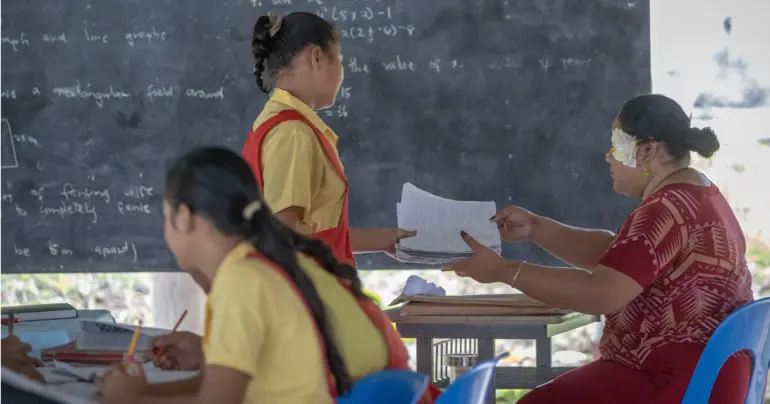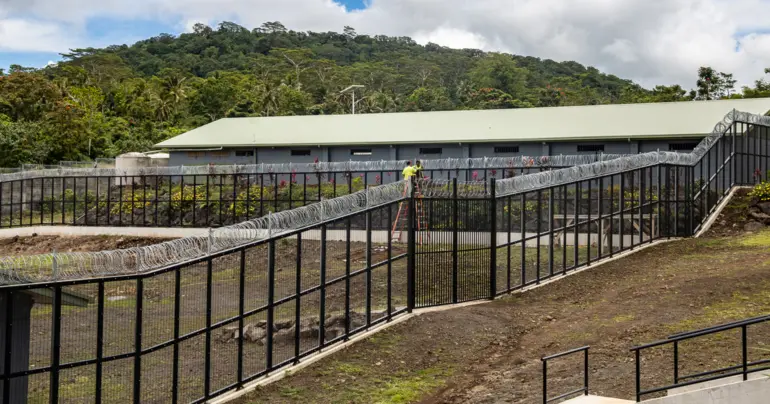Regulator with teeth free media's friend
We applaud the news that the Office of the Regulator and its chief, Lematua Gisa Fuatai-Purcell, has been proactively warning broadcasters about their responsibility to not spread misinformation.
Let us be clear: this newspaper is entirely for free speech and believes that in debates those who resort to smears and lies will always lose; we believe in the power of the truth and its ability to win out in the end.
But holding a broadcasting licence carries with it certain responsibilities. In established democracies worldover, regulators frequently warn broadcasters against using airwaves to spread false or libelous content, ranging from Australia’s Communications and Media Authority to Britain’s Office of Communications.
The Samoa Observer has a policy of self-regulation and right of reply. Those who feel defamed or wronged by the newspaper are always accorded space within these pages to make their case against previous stories. We allow the readers to decide. But media outlets that do not follow such a code are liable to mislead their audiences.
Viewers ought to have the confidence that they are not being subject to deliberate political mistruths or secret deals to promote commercial products unethically - known as “payola” in the old radio business.
As the Samoa Observer reported on Sunday, the Regulator warned station TV1 in a letter about their responsibilities to ensure their programming was lawful.
The Human Rights Protection Party (H.R.P.P.’s) Secretary, Lealailepule Rimoni Aiafi, said the singling out of programmes aired by his party for a reminder to stick to the facts was an effective Government assault on free speech.
The Secretary is, to put it charitably, talking sheer nonsense. He has styled himself, and his, party as warriors for freedom of expression when recent history shows they have been anything but.
“It was an eerie feeling, I never felt like this before…this is extreme for the [new] Government, it’s quite scary,” he said of the Regulator’s letter.
“It’s just sickening.
“I’ve been told that they blocked the comments on the Government of Samoa page, never before the previous government has done that.”
It’s unclear if the Secretary is misleading the public deliberately or speaking about issues about which he fails to understand at the most basic level. In either case he is unwittingly undermining his own argument.
The claim the previous Government never intervened on matters of free speech simply does not pass the laugh test.
It was only a little more than one year ago that the Office of the Legislative Assembly pulled the plug on the streaming of Parliament Facebook in a completely surprise move.
The Office of the Clerk of the Legislative Assembly explained its decision as follows:
“[This is an] effort to stop and dampen unpleasant and discourteous comments made towards Members of Parliament during its live proceedings on Facebook which exemplifies a breach of respect towards leaders of our country,” a statement they issued following the Facebook ban said.
Even the very recent history of the H.R.P.P.'s statements on freedom of speech and of the press undermine the Secretary's points in so many ways.
Criminal libel was introduced, removed and then introduced again by the H.R.P.P. Government. The former Prime Minister, Tuilaepa Dr. Sailele Malielegaoi, last year stood in Parliament and declared there was no such thing as absolute freedom of speech citing a civil suit against this newspaper as an example of why speech should be circumscribed.
We could go on. But to turn specifically to Leala’s point about the disabling of comments on the Government’s page; that was not an initiative taken by this Government.
It was only in May this year that the H.R.P.P. “caretaker Government” restricted the public’s ability to make comments to Government posts. Users were instead met with the message: “[The] Government of Samoa limited who can comment on this post.”
As Leala shows a Regulator with policy muscle is needed to prevent non-professional journalists from simply spreading falsehoods such as these.
To pull back the curtain on relations between this newspaper and the H.R.P.P., Leala has himself been deeply involved in attempts to restrict access by the Samoa Observer to the party’s headquarters and its official events. This was a party policy during the election and the Secretary himself was involved in a series of events that led to our attempted blocking from covering an event so banal as the handing out of ice cream to children on the White Sunday holiday.
Leala debases himself and the public by styling himself as a free speech warrior who is shocked by what he views as any curtailment on the absolute right to free speech. Our memories go back farther than that and so too do voters'.
The spread of disinformation online and how to deal with it is perhaps the defining issue of political communication in the modern age.
The spread of false information on social media is something that tech giants such as Facebook and Twitter have been grappling with, in America a country where free speech is absolute, and the onus for regulation falls on them. We have seen controversial examples of this in action ranging from the banning of the Twitter account of former President Donald Trump to accounts belonging to anti-vaccine campaigners.
The deeply complex problem with social media is that unlike its traditional form it has no editors or fact checkers yet its ability to spread malign mistruths has been proven.
How this difficult issue will be resolved only the fullness of time will tell.
But in the meantime having a telecommunications Regulator with teeth who goes back to basics and reminds traditional media of their fundamental obligations to the truth and the law is a welcome step.










